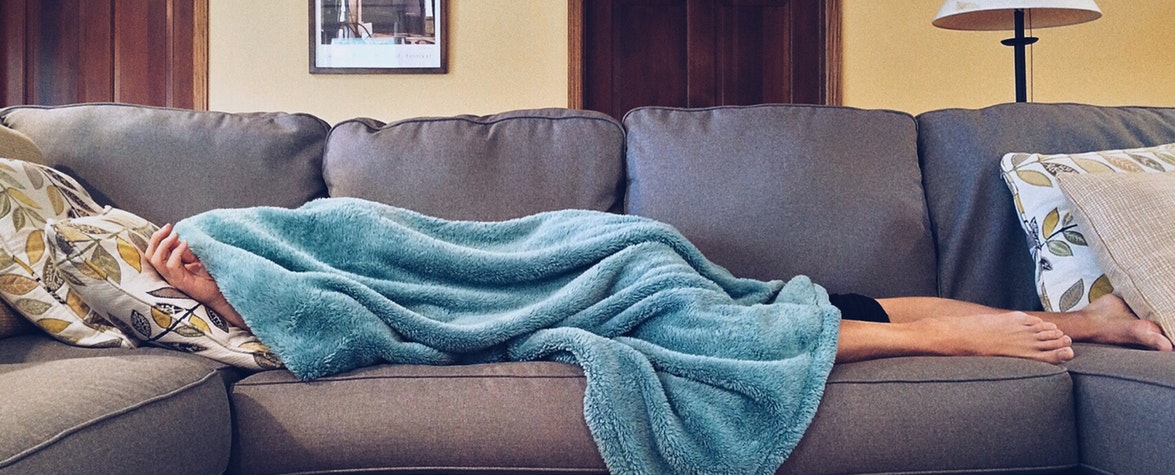Coronavirus and IBD: What You Should Know
The illness coronavirus (COVID-19) is spreading across the world, not only causing disease and death, but also a worldwide panic.
Since coronavirus recovery depends on the strength of the immune system, the danger is higher when it comes to people living with a chronic disease, such as Crohn’s or colitis.
UPDATED: March 20, 2020
What is Coronavirus?
According to the World Health Organization (WHO), coronaviruses are a large group of viruses that cause illness ranging from the common cold to more dangerous diseases such as Severe Acute Respiratory Syndrome (SARS).
A novel coronavirus (nCoV) is a new strain that has not previously been identified in humans. On February 11, the WHO named the disease COVID-19 for short. For the purpose of this article, we will refer to COVID-19 as coronavirus.
Coronavirus is a respiratory illness that can spread from person to person. People who are infected, come in close contact with others who carry the virus. It spreads through a passing of viral particles via coughing and sneezing.
This virus was first identified in Wuhan, China and has been spreading rapidly since. According to NBC News, as of March 20, COVID-19 cases were confirmed in more than 150 countries and territories.
Coronavirus Symptoms
According to the Center of Disease Control (CDC), symptoms can range from mild to severe respiratory illness with symptoms including:
-Fever
-Cough
-Tightness of chest
-Shortness of breath
More severe complications include developing pneumonia (lung infection) and death for those at high risk.
Who’s at High Risk?
Anyone can catch the disease but certain populations are more vulnerable to its more severe side effects.
Since the disease is new, scientists are still leaning a lot about it. But specific risk populations include: the elderly, those living with a chronic disease such as Crohn’s or colitis, pregnant individuals, and children.
According to Global News, the majority of those who have died from the virus had underlying health conditions such as hypertension, diabetes, or cardiovascular diseases which weakened their immune systems.
Coronavirus and IBD
Crohn’s and Colitis UK created a guide to advise people with IBD to stay safe from the coronavirus.
Patients who take immunosuppressants for Crohn’s Disease or Ulcerative Colitis, aren’t at an increased risk of catching the virus, however may be at an extra risk of complications from the virus if they do get infected.
Immunosuppressants
Immunosuppressant drugs are used to treat autoimmune disease such as Crohn’s. With an autoimmune disorder, the immune system attacks the body’s own tissue. Since immunosuppressant drugs weaken the immune system, it slows or stops this attack from happening.
Immunosuppressive drugs for Crohn’s and Colitis include:
-Steroids: prednisolone and budesonide
-Methotrexate: MTX, Rheumatrex, Trexall
-Azathioprine: Azasan, Imuran
-Cyclosporine
-Tacrolimus
Patients taking these immunosuppressive medications are considered to be high risk, meaning they have a greater chance of more severe infection or medical complications from coronavirus.
In general, patients should continue taking prescribed immunosuppressant therapy. This is because even if the medication is stopped and the patient develops a bad flare, the immune system would go back to attacking the body and “ignore” the coronavirus invaders. It also takes up to a half a year for the medication to leave the body.
5-ASA medications (mesalazine, pentasa, mezavant, olsalazine, and balsalazide) are in the same family as non-steroidal anti-inflammatory drugs (NSAIDs). The same advice applies to these medications. According to Crohn’s and Colitis UK, there is no evidence that taking these drugs will increase the risk of catching or having complications from coronavirus.
Patients taking immunosuppressants should seek the advice from IBD medical professionals before considering stopping or making any change to medications.
Prevent Exposure
Since coronavirus is contracted from other people, its extremely important to take social distancing and hygienic precautions to avoid the infection, particularly for high risk patients.
The best way to prevent infection is to avoid being exposed to the virus. The best way to do this is to avoid contact with people who are sick. In addition, precautionary actions include:
-Avoid touching eyes, nose, and mouth when hands are unwashed
-Wash hands often. Use soap and water and scrub for at least 20 seconds
-Use an alcohol-based hand sanitizer that contains at least 60% alcohol if soap and water are not available
Self-Isolating vs. Social Distancing
Self-Isolating
Self-isolating is highly recommended for anyone who develops symptoms or is living with someone with symptoms. This means staying at home, avoiding all contact with other people.
This means going to to a place where the person is going to stay, then remain indoors and avoid contact with other people. This will help prevent the disease from spreading to others:
-Not going to work, school, or public areas.
-Avoid public transport such as buses, trains and taxis.
-Avoid having visitors at home but friends and family members can deliver necessary items such as groceries, medications, or other shopping.
If symptoms are present, patients should be at home for 7 days. After 7 days, if there is still high temperature, patients should stay home until the temperature returns to normal. If living with others, they should stay home for 14 days after the first person has symptoms.
Those with coronavirus should take extra careful measures to:
-Cover a cough or sneeze with a tissue, then throw away the tissue
-Clean and disinfect objects and surfaces that are often touched
Social Distancing
Everyone, whether healthy or not, should be conscious of reducing their contact with other people. This is important in order to slow the spread of coronavirus.
Social distancing includes:
-Avoiding contact with people who have coronavirus symptoms
-Avoiding non-essential travel on public transport
-Working from home if possible
-Avoiding or limiting gatherings, especially those of more than a few people
-Using telephone or online services as much as possible
Unfortunately social distancing is associated with health risks, but in terms of corona virus, it’s more important to reduce contact with other for the time being in order to reduce the risk of the severe symptoms and complications associated with the illness.
Here are some helpful resources of how to cope with social distancing from the American Psychological Association.
NoriHealth Support
Nori Health is a digital coach who is there to support you in discovering and changing the lifestyle factors that impact your well being. She’s there for you 24/7 to listen to what you’re going through and provide tips to help you improve your life. She can help you find the foundation you need.
The NoriHealth team sends their love. support, and healthy wishes during this tough time.
**If you have questions about coronavirus, or are concerned you may have it, use the online NHS 111 service to check your symptoms 111.nhs.uk/covid-19**
This article has been written by Lisa Booth, registered dietitian and nutritionist, and co-founder of Nori Health. Content is based on her professional knowledge, and our collection of 100+ scientific research study papers.



